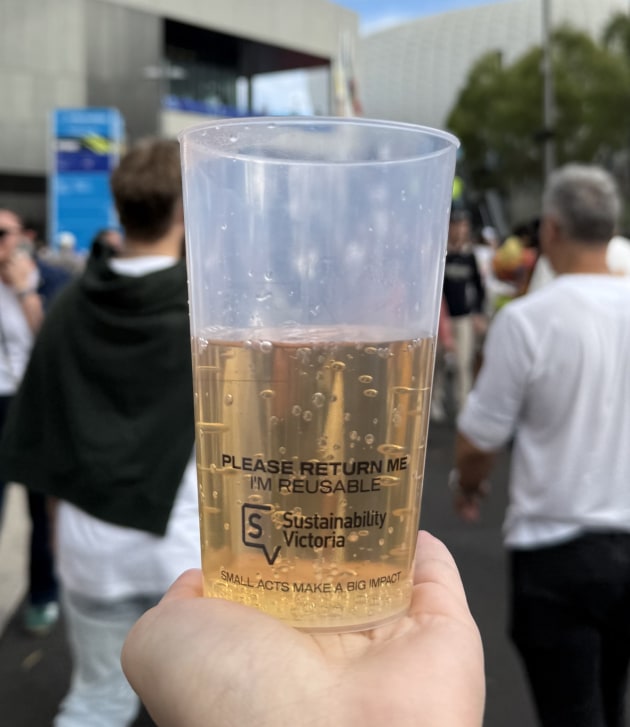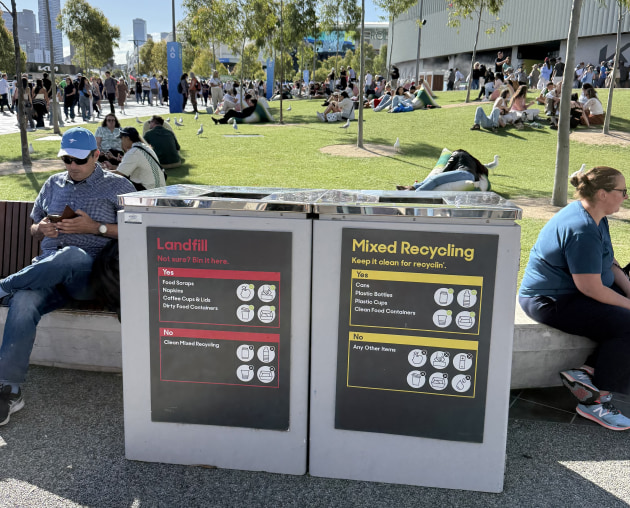With clear skies and the Australian Open buzzing with energy, long lines for drinks and food are inevitable. Despite the crowd and wait, attendees remain patient as they line up for their refreshments. Many opt for drinks served in packaging that supports the event's waste management efforts, guiding spectators toward sustainable choices.

The Australian Open has implemented a reusable cup initiative to reduce plastic waste. Attendees across all arenas encounter clear bin systems with designated sections for mixed recycling, landfill, and reusable items, making it easier for spectators to understand what can be discarded and recycled.
Some beverage cups carry messages encouraging their return for reuse, which helps guide many people and results in fewer single-use cups scattered around the venue. Most of the beverage outlets, including brands like Canadian Club and Grey Goose, serve drinks in these reusable cups.

The recycling hub, presented by Victoria’s container deposit scheme, features sections for mixed recycling, landfill, reusables, and a specific area for cans and plastic bottles. This initiative supports the ongoing efforts to minimise the environmental impact of large-scale events. Attendees can finish their drinks and easily return the cups to the recycling hub.
The Boomerang Alliance, a coalition of 55 groups advocating for zero waste, commends Tennis Australia for this move. Toby Hutcheon, campaign manager for the alliance, emphasises this step, stating, “To our knowledge, the Australian Open is the first major international event hosted in Australia to adopt this practice, and we welcome this initiative.”
Hutcheon stresses the importance of efficient reuse systems, noting that collection points and incentives are crucial for ensuring the return and reuse of containers. He says, “Getting the data and the learnings from this initiative is crucial to improving a reuse system for any future events.”
He also references the success of similar initiatives at the 2024 Paris Olympics and the Euro Football Championships in Germany, suggesting this practice should become standard for major sports and public events to cut greenhouse gas emissions and eliminate plastic waste.
Looking ahead, Hutcheon urges state and territory governments to implement reuse policies for major events, citing Tennis Australia's lead. “The ball is now in your court,” he concludes, calling for broader adoption of reuse systems across stadiums and events.





